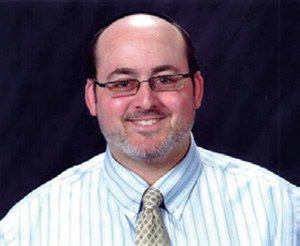
The story goes that a witch wanted to cast a spell on Rabi Chanina (Chulin 7b) and he said, “Do your best but it won’t work because Hashem is in charge of everything.” He then explained the verse (Devarim 4:35) “…ein od milvado, there is nothing besides Hashem” to teach us that “a person doesn’t bang his finger unless it has previously been so decreed in Heaven.” The idea is that if someone gets hurt, it was from God (and not from someone else’s ill intent).
It’s for this reason that if something bad happens to a person he is supposed to reflect on it. Though someone else may have pushed him down the stairs, he only went down because Hashem ruled in heaven that it should be that way. Therefore, there’s a message for him in the bang.
I’m not sure which message I was supposed to get when I recently walked into shul from the bitter cold outside and accidentally smacked my hand into the corner of a wood-paneled wall. Having been so cold, the hit split the skin and caused blood to flow. I thought of this gemara right away and knew it was min hashamayim.
What I learned, however, was something very special. You see, when someone hurts a part of the body they use all the time, like their thumb or index finger, it’s obvious that it will cause frustration and decreased use of the digit, if not pain and suffering too. But sometimes we hit a part of the body, like I did in banging my hand and opening the side of my knuckle, that we figure doesn’t get so much use and will be less of a burden.
The surprise I was in for was finding out I really do use that part. When I drive, I tend to roll the steering wheel across the back of my hand as a means of making a controlled turn. All of a sudden, I found myself wincing in pain because, to my surprise, I’m actually using this body part more than I knew.
How many times have you done some heavy lifting, gardening, playing sports or other similar actions and later you experience charley horse, and your muscles hurt for days? You suddenly are wracked with pain in places you didn’t know you had, let alone muscles that would be used!
It’s part of the same idea. In the course of our normal daily lives, we don’t think very much about those muscles or that knuckle. Like the flap of skin on our elbows or our appendixes, we don’t immediately see a meaningful use for them and naively think they’re not important. But it isn’t true (though I still couldn’t tell you what the appendix does, other than give us a word in the dictionary for something added on. Unless that came first and the organ’s name came later…)
Hashem knows exactly what we need in life and what we will need in the future. He gives us all the tools, though we may not recognize their value all the time. Everything in our lives is there for a purpose and at some point we will use it. It therefore behooves us not to take anything for granted and not to think anything is unimportant.
When events occur and make their presence known in our lives, there’s a purpose. There was the story of a woman who came to a local beit din complaining that her husband had abandoned her, leaving her an agunah—a chained woman. R’ Simcha Bunim of Peshischa was there and said, “Your husband is in the hachnasat orchim house of such-and-such city.” She went there, found her husband, and obtained a divorce.
The city was in an uproar about the far-reaching vision of R’ Simcha Bunim but he shrugged it off. “It wasn’t a miracle at all,” he said. “I was in the mikveh and overheard two men speaking. One of them mentioned that so-and-so was in the public hostel in a certain town. Since I make it a practice not to speak about others, I realized that I had heard it for some purpose and filed it away until the woman came to our court.”
When we recognize that there are no such things as coincidences, only, as my friend R’ Dovid Winiarz, z”l, would say, “Kah (a name of HaShem) incidences”—that is to say, circumstances set up by God Himself in order for His plan for the world to unfold—then we will be able to appreciate not only the big things, nor even the small things, but everything, because all of it is important and beneficial.
By Rabbi Jonathan Gewirtz
Feedback is welcome and appreciated. E-mail info@JewishSpeechWriter.com to share your thoughts. Life is full of inspiration, just waiting for us to find it. It’s a treasure hunt and the rewards are greater than we can imagine.











